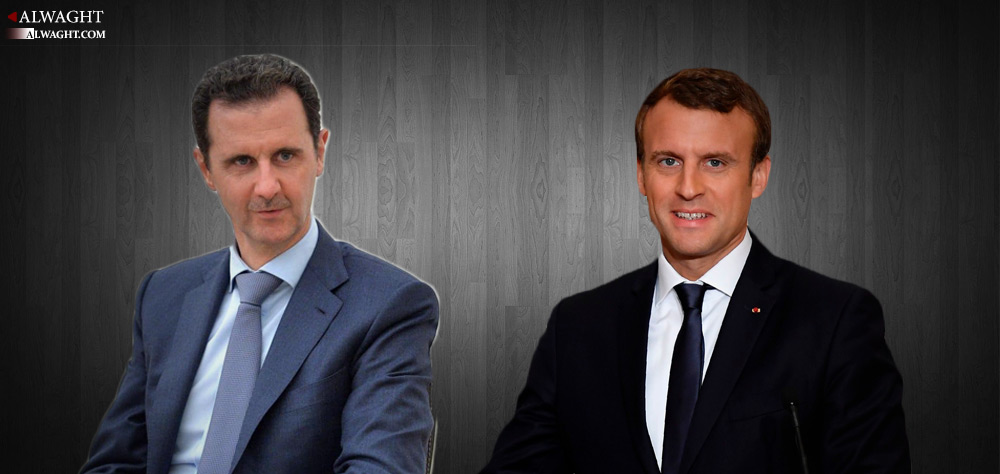Alwaght- The New French President Emmanuel Macron has shown signs that he not only seeks serious social, economic and security reforms at home but also he has revolutionary views when it comes to the foreign policy.
The Syrian crisis, meanwhile, appears to be of priority for the new French leader who has recently come clean on France's Syria policy, signaling change to Paris approaches towards Syria's six-year-old crisis.
Before Macron's election as president nearly two months ago, France with its former President Francois Hollande along with other parties including the US, Britain, and the Arab-Turkish camp sought toppling Syrian president Basher al-Assad by military intervention and supporting a wide range of anti-Damascus militant and terrorist groups.
The bloc of anti-Syrian sides during the past six years took an array of measures against Syria. But recent years saw the Syrian conflict undergoing some changes. The terrorist groups that unceasingly received backing from their patrons in their fight against the Syrian forces changed policy and launched attacks in the sponsoring countries.
The best example of the terrorists' policy review was the terrorist attacks in France that sustained the biggest damage among the victim Western countries. Following the string of attacks that hit France, the French leaders gradually changed their stance on crisis in Syria. The initial transformation to the French approach began at the time of Hollande, when terrorist blasts rocked the country in January and November 2016, and March 2017.
After the assaults, Paris vowed to have active participation in the international anti-ISIS coalition led by the US through intensification of its strikes in Syria and Iraq.
On June 22, Macron during an interview told a number of European newspapers that “Assad's removal is no longer a priority” in solving the Syrian crisis. The French leader further said that the top priority should be fight against terrorism, adding that the main goal of Paris was to find a political settlement to the conflict. He, during a meeting with the Russian President Vladimir Putin in late May, noted that France will support the Astana peace talks initiated by Russia between the warring sides, as it backs Geneva talks that have the Western favor and are supervised by the UN and its envoy to Syria Staffan de Mistura.
Macron's alteration of attitude to the Syrian struggle bears significance because it gives a change to balance inside the European Union, though the EU has recently expanded list of its sanctions on Syria to include more Syrian government’s institutions and figures under the excuse of an alleged chemical attack in early April blamed by West on Damascus. The French president beside change of stance on Syria has stated that chemical weapons use was Paris “red line” in Syria, and if such attacks happen again, France will take action against Damascus along with other allies like the US.
At the same time, the French leaders appear to have reached the understanding that the US will take any direct or indirect way to obtain its goals in Syria. Washington has recently sent at least 100 armed vehicles with various heavy and light arms to the allied Syrian Democratic Forces and has intensified presence on the border areas between Syria, Iraq, and Jordan.
Seeing bolstered American role in Syria, the Europeans now seek a more influential role in Syria at least politically. This prompts the expectations of a bigger French attempt to push for EU's bigger role in the Syrian crisis. Internally, France along with Britain has been the European bloc's main intervener in the Syrian conflict, while Germany, a leading member in the bloc, has sought a marginal role.
The German leaders in many cases have favored avoiding direct involvement in Syria war. This may have inspired the French leader. Macron’s hosting of Russian leader in Paris prompted speculations on France’s review of approach to the crisis in Syria. This raised hopes of Russian success to persuade France not to seek Assad removal as a priority.



























